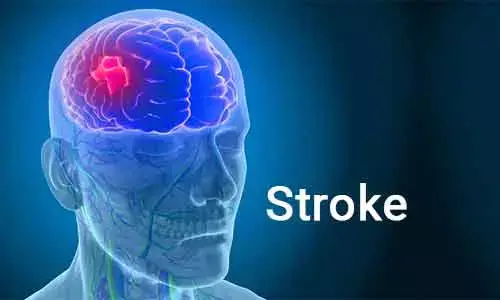- Home
- Medical news & Guidelines
- Anesthesiology
- Cardiology and CTVS
- Critical Care
- Dentistry
- Dermatology
- Diabetes and Endocrinology
- ENT
- Gastroenterology
- Medicine
- Nephrology
- Neurology
- Obstretics-Gynaecology
- Oncology
- Ophthalmology
- Orthopaedics
- Pediatrics-Neonatology
- Psychiatry
- Pulmonology
- Radiology
- Surgery
- Urology
- Laboratory Medicine
- Diet
- Nursing
- Paramedical
- Physiotherapy
- Health news
- Fact Check
- Bone Health Fact Check
- Brain Health Fact Check
- Cancer Related Fact Check
- Child Care Fact Check
- Dental and oral health fact check
- Diabetes and metabolic health fact check
- Diet and Nutrition Fact Check
- Eye and ENT Care Fact Check
- Fitness fact check
- Gut health fact check
- Heart health fact check
- Kidney health fact check
- Medical education fact check
- Men's health fact check
- Respiratory fact check
- Skin and hair care fact check
- Vaccine and Immunization fact check
- Women's health fact check
- AYUSH
- State News
- Andaman and Nicobar Islands
- Andhra Pradesh
- Arunachal Pradesh
- Assam
- Bihar
- Chandigarh
- Chattisgarh
- Dadra and Nagar Haveli
- Daman and Diu
- Delhi
- Goa
- Gujarat
- Haryana
- Himachal Pradesh
- Jammu & Kashmir
- Jharkhand
- Karnataka
- Kerala
- Ladakh
- Lakshadweep
- Madhya Pradesh
- Maharashtra
- Manipur
- Meghalaya
- Mizoram
- Nagaland
- Odisha
- Puducherry
- Punjab
- Rajasthan
- Sikkim
- Tamil Nadu
- Telangana
- Tripura
- Uttar Pradesh
- Uttrakhand
- West Bengal
- Medical Education
- Industry
New Drug may effectively reduce deadly brain swelling after stroke

Researchers at the University of Exeter have developed a compound to treat brain swelling effectively after stroke.
Stroke is typically caused by a blood clot in the brain and can lead to death within minutes. In the UK alone, more than 100,000 strokes occur each year, averaging one every five minutes. Currently. Two-thirds of stroke survivors leave the hospital with a disability, according to the Stroke Association.
Cases of potentially deadly brain damage as a result of stroke could be reduced after new research identified a pathway in the brain that causes swelling, and which responds to innovative treatment.
Researchers at the University of Exeter have discovered how a malfunction in the way key proteins are transported within the brain after a stroke can lead to swelling, which can cause severe damage. The study has been published in Nature Communication.
The international team has developed a compound which effectively treats this pathway in laboratory tests, paving the way for a new treatment. This could potentially provide an alternative, more effective way to treat brain swelling, for which currently there are limited treatment options.
The work was developed by a consortium of experts in Signalling Transduction (Dr Jinwei Zhang, University of Exeter, UK), Medicinal Chemistry (Professor Xianming Deng, Xiamen University, China), Neurosurgery and Cellular and Molecular Physiology (Dr Kristopher T. Kahle, Yale School of Medicine, USA) and Neurology (Professor Dandan Sun, Veterans Affairs Pittsburgh Healthcare System and University of Pittsburgh, USA).
A stroke can damage cell volume regulation in the brain, resulting in swelling, a complication that is severe and difficult to treat, currently addressed by the highly invasive surgical procedures of removing part of the skull or inserting a shunt of cerebral spinal fluid. Shunts are particularly susceptible to malfunction and infection, and therefore often require patients to endure a number of repeat operations.
The compound, called ZT-1a, targets a pathway that controls proteins that act as transporters of ions and water in and out of cells. It works by stopping enzymes that activate proteins which bring too much water into the brain. It was tested on mice and rats which had stroke or hydrocephalus, a condition which causes fluid on the brain. These studies indicate that the compound may be able to stop brain swelling, potentially reducing cases of brain injury and death.
Dr Jinwei Zhang, Lecturer at the University of Exeter Medical School, led a team including collaborators in China and the US, that has developed the compound. He said: "Brain swelling after a stroke is a common and devastating problem for individuals and their families. Our discovery could address the urgent need for treatment that could provide an effective alternative to invasive surgery. The drug is still in the laboratory and requires further development. So far it shows promise in effectively reducing brain swelling in stroke, and other brain injuries such as drowning, choking or heart attack."
for further references log on to:
Dr Kamal Kant Kohli-MBBS, DTCD- a chest specialist with more than 30 years of practice and a flair for writing clinical articles, Dr Kamal Kant Kohli joined Medical Dialogues as a Chief Editor of Medical News. Besides writing articles, as an editor, he proofreads and verifies all the medical content published on Medical Dialogues including those coming from journals, studies,medical conferences,guidelines etc. Email: drkohli@medicaldialogues.in. Contact no. 011-43720751


